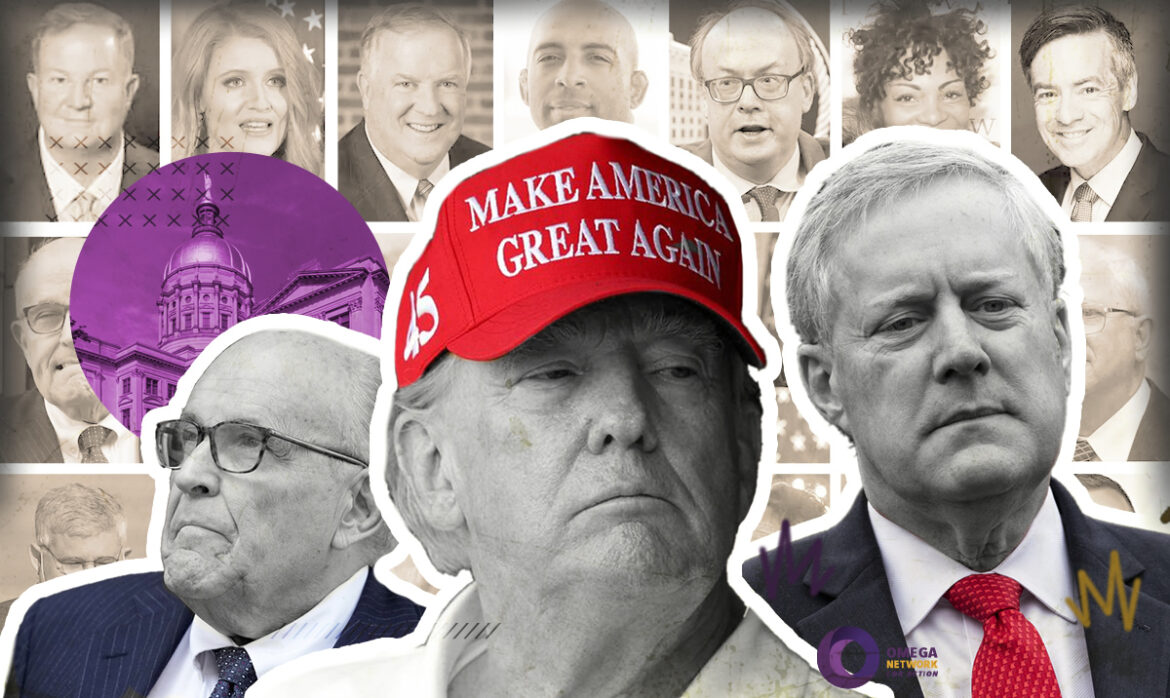In an unprecedented turn of events, a grand jury in Fulton County, Georgia, has handed down indictments against 19 individuals, including former President Donald J. Trump, in connection with a sprawling conspiracy to overturn the 2020 presidential election results. The indictment alleges that Trump and his associates participated in a “criminal enterprise” aimed at derailing the peaceful transition of power to President Joe Biden. These charges raise significant legal, political, and ethical questions about the sanctity of the democratic process and the accountability of those who wield power.
Donald Trump: The Alleged Mastermind
The indictment accuses former President Trump of being the central figure behind the “criminal enterprise.” District Attorney Fani Willis contends that Trump orchestrated a multifaceted and illegal effort to corrupt the 2020 election results. Prosecutors assert that Trump not only oversaw the operation but also directly participated in several unlawful attempts to maintain his hold on the presidency.
Rudy Giuliani: The Enabler of Trump’s Schemes
Trump’s former personal attorney, Rudy Giuliani, emerges as a key player in the indictment. Prosecutors argue that Giuliani was Trump’s right-hand man in various aspects of the alleged scheme. His involvement ranged from lobbying state legislatures to reverse the election outcome to orchestrating a press conference, alongside other Trump lawyers, where baseless claims of ballot fraud were propagated. Giuliani’s subsequent visits to state capitols to encourage lawmakers to embrace unfounded claims of fraud also contribute to the indictment’s charges against him.
John Eastman: The Architect of Desperation
Legal expert John Eastman is accused of playing a pivotal role in the most extreme and desperate efforts to keep Trump in power. Using his access to the White House, Eastman allegedly pressured then-Vice President Mike Pence and his aides to subvert the election results. The indictment details Eastman’s involvement in working with state legislatures to appoint pro-Trump electors and override the will of voters, contributing to the broader conspiracy.
Mark Meadows: Trump’s Chief Collaborator
Former White House Chief of Staff Mark Meadows is alleged to have played a central role in Trump’s post-election campaign to overturn the election outcome. The indictment highlights a meeting between Trump, Meadows, and Michigan officials, during which Trump reportedly made false statements about election results. This meeting is cited as evidence of the racketeering conspiracy outlined in the indictment.
Kenneth Chesebro and Jeffrey Clark: Key Operatives
Kenneth Chesebro, a lawyer, and Jeffrey Clark, a former Justice Department attorney, are both identified as significant contributors to the conspiracy. Chesebro drafted memos outlining strategies to assemble “contingent” electors and push then-Vice President Pence to block Biden’s election. Clark, once considered for the role of acting attorney general, helped draft letters aimed at pressuring state lawmakers to appoint pro-Trump electors. Their actions are said to have laid the groundwork for the final desperate attempts to overturn the election results.
Sidney Powell: Prominent Voice in Efforts to Undermine Election Results
Lawyer Sidney Powell gained prominence as a vocal advocate for overturning the election. Her involvement extended to pushing Trump to assert federal authority to seize voting machines, allegedly leading to the unlawful breach of election equipment. Powell’s role in hiring a forensic data firm to conduct computer forensic collections and analytics on Dominion Voting Systems equipment is highlighted in the indictment.
Collateral Damage and Alleged Tampering
The indictment names several other individuals, including Trump campaign aides, lawyers, and false electors, who are accused of playing various roles in the conspiracy. The charges range from attempting to influence election workers’ testimony to tampering with electronic voting equipment in Georgia’s Coffee County.
Broader Implications and Political Fallout
The indictment’s wide scope and utilization of the state’s racketeering law to charge the defendants underscore the gravity of the alleged crimes. The case raises crucial questions about the integrity of elections, the responsibility of public officials, and the accountability of those who seek to undermine democratic norms.
As the legal proceedings unfold, the nation will watch closely to see how the justice system addresses these allegations. The charges bring into focus the fragility of democratic institutions and serve as a reminder that even the most powerful individuals are not above the law. The trials ahead will undoubtedly shape the discourse around accountability, justice, and the fundamental principles upon which the United States was founded.


